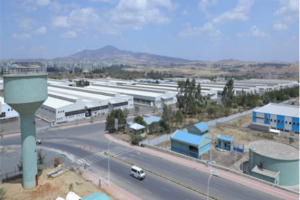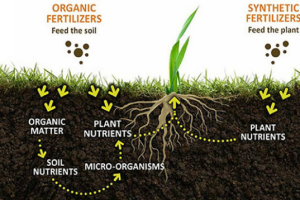
Ethiopia, which is regarded as the origin of Arabica coffee, is one of Africa’s largest producers and exporters of this commodity. Coffee production is dubbed as the backbone of the country’s agriculture-led economy. Coffee is growing naturally in Ethiopia and most of the coffee is under shade without the use of agricultural chemicals. Besides, the country is endowed with the major specialty coffee types like Yigachefie, Sidama, Harrar, Limu, Nekemt, among others, as they are known for their quality and mesmerizing flavor.
Dry processed bean is the most commonly used coffee preparation methods in Ethiopia but, wet-processed beans are getting more popular since recently. There are numerous varieties of coffee bean with their own distinct flavor and sizes.
The Ethiopian Coffee and Tea Authority have recently proclaimeed that the country has earned over 716 million USD from coffee exports over the past eight month of the current fiscal year.
Authority Public Relations and Communication Director, Sahlemariam Gebremedhin told the media that the country has amassed about 716.35 million USD from 150,430.55 tons of coffee export to the international market in the stated same period.
Reminding the country’s plan to obtain 1 billion USD exporting 211,370 tons of coffee to the international market in the same stated period of the fiscal year, the Public Relations and Communication Director said adding that the performance reaches 67% the target.
Compared to the last same budget year, he said, this year’s export volume exceeds 7,228.78 ton. Consequently, there is a slight decrease due to the decreasing volume of the global coffee market.
He said Ethiopia is known as the birth place of Coffee Arabica. Coffee has been and remains the leading cash crop and export commodity of the country. Coffee export has heavily contributed to both domestic and foreign earnings in the country.
He said, “The country secured about 88.64 million USD from 19,245.90 tons of coffee a month before. Thus, it shows a slight difference compared to the same period. Saudi Arabia, South Korea, America, Germany, Japan, Belgium, China, Sudan, UAE, Italy are the main Ethiopian coffee destination countries. Most importantly, the products exported to major Ethiopian coffee destination countries accounted for 80% of the total coffee trade and 79% of the total revenue.”
As to him, the country earned 152.36 million USD exporting 37,614.41 tons of coffee to Saudi Arabia, which is the leading buyer of Ethiopian coffee.
Furthermore, the Authority has secured 72.84 million USD by exporting about 12, 583.89 tons of coffee to South Korea. Besides, it has managed to hit 60.27 million USD exporting 9,438.15 tons of coffee to America.
The director also indicated that the Authority is currently carrying out multifaceted undertakings to enhance the quality and productivity with a view of generating more revenue.
Unequivocally, the country produces high-quality coffee beans. The country has provided users with world-class quality and coming up with the best cups of coffee at large. It is also well explained that Ethiopia exported 117,955 tons of coffee to the international market during the first half of the current Ethiopian 2023/24 fiscal year.
As to the Ethiopian Coffee and Tea Authority, Saudi Arabia, South Korea, the United States, Germany, Japan and China were the major destinations of Ethiopia’s coffee exports during the stated period.
Despite efforts to augment the coffee export volume and earnings, the authority said uncertainties in the global coffee market coupled with ongoing conflicts in coffee-importing countries have posed challenges.
Widely recognized for its rich coffee quality and flavor, Ethiopia, these days, is focusing on the boosting coffee production and productivity. Yes, as relocation of coffee farms/areas will be a key component in building resilience for the Ethiopian coffee economy, the country has to follow a very strategic and lucrative means.
Since climate change negatively affects coffee farmers as they experience late harvests due to lack of rainfall and lack of knowledge and technology to implement climate smart agriculture practices, Ethiopia is left with a long journey in this regard.
As learnt from sources, some coffee farmers in the eastern and southwestern parts of the country switched to farming khat, a drought tolerant plant used as a stimulant drug. Khat has short term economic advantages and a better price but long term negative environmental and health consequences.
Obviously, Ethiopia remains prized on the international specialty coffee market for its high quality and unique characteristics. Demand for Ethiopian specialty coffee has also increased and continues to grow. Its higher quality status is achieved by implementing the best agricultural practices in farming, harvesting, and processing methods, combined with elevated levels of quality control. In an ideal model, the extra income generated by specialty coffee is distributed throughout the supply chain, including the coffee farmers.
The volatility of international markets, along with domestic challenges, contributed to the shortfall. High coffee prices in Ethiopia’s domestic market and exchange rate rules that limited exporters to utilizing only 20 percent of the foreign currency they secured discouraged exports.
In addition to volatility in the global market, as per source, ‘illegal trading’ as another hurdle affecting Ethiopia’s coffee export targets. Trading premium-quality coffee slated for export locally is considered illegal in Ethiopia.
Illegal trade, contract defaults and forgery of export coffee beans have been a persistent problem, resulting in substantial financial losses given that coffee represents a significant portion of Ethiopia’s economy. Overcoming such challenges would help Ethiopia bring about economic growth and sustainable development. The impact of Coffee exports on economic growth in Ethiopia is vividly witnessed, indeed!
Growth is among top global agenda nowadays and countries such as Ethiopia are struggling battles to hasten their economic growth. Increasing efficiency of coffee sector, value addition to coffee beans before exporting would enable country to generate weighty revenue to finance its economic growth, the Director stated.
Economic development is one of the principal goals of every economy in the world, and growth is indispensable for countries to achieve desired level of economic development. In a similar way, growth is determined by many factors, yet the question is how countries can realize their growth. Agriculture is the dominant sector in Ethiopian economy.
Hence, it serves as the back bone of country’s economy, which again determines the success of all other sectors. It contributes for 34% of GDP, 85% of foreign exchange earnings, employs 80% of labor force. A unique feature of Ethiopian agriculture is the role of smallholder farms in the total output.
As economy is largely agrarian and export is largely dependent on the sector, coffee is most important traded commodities in the world with development and poverty implications given high engagement in production by small-holders in Ethiopia.
Agricultural sector in Ethiopia is based on traditional methods with insufficient market information, unstable price, poor quality, lack of trust among trading partners and uncoordinated markets. The bulk of the country’s export earnings come from the agricultural sector basically coffee. Furthermore, exported primary goods are less competitive related to imported capital goods making trade balance to deteriorate as compared to current exporter. Coffee in Ethiopia has been dynamic with credibly immense potential, of course.
To improve the competitiveness of the country in its coffee export according to the target markets preferences, the country needs to be in a position to help boost domestic coffee production via improving exporter’s capacity for competition, consistency, communication, logistic and regulatory procedures. Strategies to improve the quantity and quality of export coffee in Ethiopia have to be scrupulously applied, and coffee has to be well nurtured.
Ethiopia provides the highest quality coffee since it is the birthplace of Arabica coffee. This coffee is Ethiopia’s most important export item. In the country, smallholders produce 95% of the coffee, with little or no intensification of the production system. Coffee can be combined with spices, bananas, and other similar crops. As a result, coffee will not be the primary source of income for growers, and they will be able to maximize their earnings from the same land they used to cultivate.
The long run coffee export has positive and significant effect on economic growth in the country. Coffee trading has played a significant role in the aggregate changes in the economy of countries exporting coffee. Coffee exports have a positive and significant link to economic growth. Being aware of the importance of coffee export on economy, Ethiopia has focused on producing coffee and making it boost in terms of production and exports
BY MENGESHA AMARE
THE ETHIOPIAN HERALD TUESDAY 9 APRIL 2024




